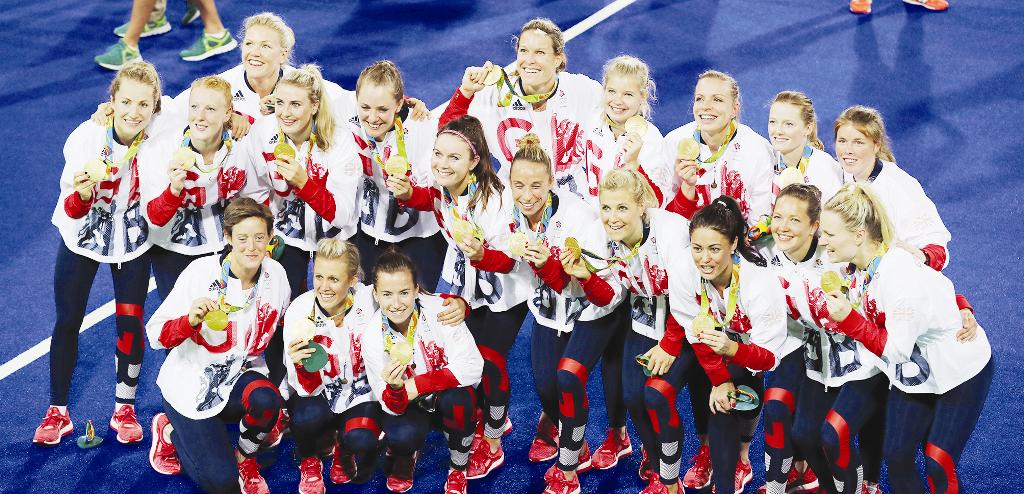As the men’s and women’s England squads return from their respective South Africa trips, I am reminded that the immediate period post-Olympics is always an interesting one. Squads disband and are reformed, staff members move on to other roles and players take mental and physical respite from what is now a very demanding full-time programme.
New, exciting players are drafted in for assessment and a period of development ensues. It’s a tumultuous time for every programme around the world and I think this is often seen in the up and down match results for the first year post-Olympics. It’s also an exciting time, when you get a first glimpse of the potential you hold in your group.
For the first time in a long time, I wasn’t a part of the rebuilding process for England and Great Britain. I can’t lie; there was a part of me that felt at a loss not being there myself. However hard the training (and it was always hard), no matter the results in the Test matches, this opening period of a cycle was a challenging one, and one, more often than not, I enjoyed.
Of course there are always exceptions to the rule, but learning to cope with and take the rough with the smooth is an important part of the process. As a group of individuals and as a team, your resilience will be tested often over the course of a four-year Olympic cycle. The team that steers through the storm as a collective will succeed in their vision.
This joint vision and aligned sense of purpose is what binds the team together. Teams fascinate me. Bringing a group of people together, with a whole host of differences, to work tirelessly towards a common goal is incredible. High levels of self-awareness and an in-depth understanding of each other are the foundation for which great teams, companies and organisations are built upon.
For this reason, it can take time for a group of people to really become a team. Warm-weather training in foreign climes allows for an extra intense period to somewhat fast track the inevitable “forming” and “norming” stages of development. The head coach and staff can start to imbed values, style of play and group behaviours. It’s a key and integral part of the four-year cycle. As the saying goes, ‘start as you mean to go on’.
As a group of players starting a new cycle it is most definitely an exciting time. I think it would be remiss of me to note that there can also be some uncertainty for players in this period. Change is hard. Change is important and necessary, and the knowing of these facts doesn’t make it any less hard!

In a somewhat limbo state, players try and grasp where they fit, what their role is and how are you going to make this work as a team. There can be a little bit of fear of the unknown and it’s tempting to want to look far ahead into the future and guess the ending. Like reading the back page of the book when you’re only a few pages in.
Good leadership ensures that players stay firmly centred on the here and now. I’m certain that Danny and his management team would have been encouraging this out in SA. Historically, the England squads under Danny’s leadership have been all about the processes. The day-to-day good habits and positive behaviours that you develop and practise every day, in my experience, are the difference come tournament time. I’m sure both Danny and Bobby started to turn the squad’s attention to these cornerstones during the trip.
The trip to South Africa would, I’m sure, also allow time for all of the specialist practitioners to begin to embed their views and methods of working on the squads.
I saw on social media that Emma Gardner, the GB nutritionist, was busy taking and measuring data on the players. This period of data collection helps formulate and kick start the individual player strategies for nutrition, strength and conditioning, video analysis, psychology and physiotherapy.
The very best teams have a support staff working collaboratively towards the whole team’s common goal. These support services, and our use of them, have grown exponentially since my first cap in 1999. In the build up to my first senior tournament, the 1999 European Championships, the only measurements I remember taking were bleep test, body fat and some basic physical competencies. My best scores came in the sit-and-reach test!
When used wisely, with the right people, these support services can be the difference between being ok and being truly excellent. It falls upon individuals to grab these opportunities by the horns though and the more open you are to getting as much help as possible from as many perspectives as possible the better your ability to be the very best you can be.
Good luck to both squads as they set off towards their respective goals and a huge congratulations to all the debutants out in South Africa. You will remember the day you became an international player for the rest of your life.
*This column originally featured in The Hockey Paper, which is available every Wednesday.





